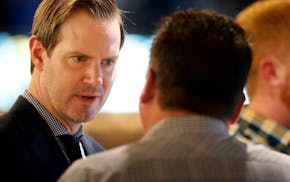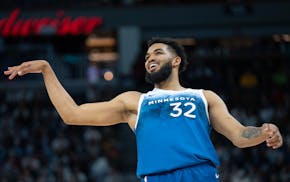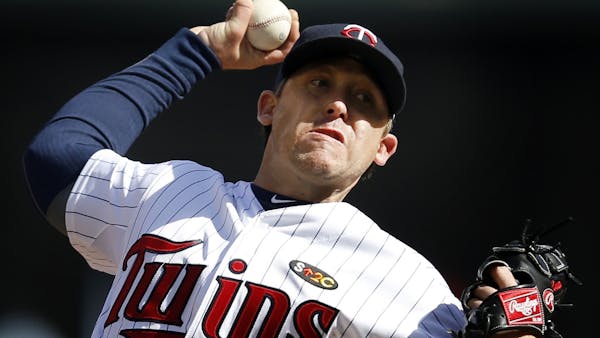The Twins went 73-89 and finished 19 games behind in the American League West in 1978. Lyman Bostock and Larry Hisle had left before that season, and Rod Carew and Dan Ford were traded to California in separate deals after that season.
There was nothing to suggest competitiveness to start the 1979 season, and then Roy Smalley, a 26-year-old shortstop, took on the responsibility of carrying his team.
"I wouldn't go that far," said Smalley, as he watched the Twins' dreary 8-3 loss to Oakland in the home opener Monday at Target Field. "I had done my best hitting as a big-leaguer in the second half of 1978, and it sort of carried over from there."
Sort of.
What Smalley did for the Twins in the first half of 1979 was otherworldly. After the games of July 4, he was batting .372 with 15 home runs, 62 RBI, an on-base percentage of .452 and a slugging percentage of .595.
Smalley's wreckage of AL pitching had the Twins at 43-35 and 2 ½ games out of first place on Independence Day.
"It was the first time in my life that I had to deal with being that good," Smalley said. "When I cooled off, it wasn't the easiest thing to deal with … for me or the rest of the lineup."
There was no day off to re-evaluate for Smalley, not with his uncle, Gene Mauch, writing out the lineup as manager. Smalley played in all 162 games. He finished at .271 with 24 home runs and 95 RBI.
Still, it was a Twins team that would have lost in the 90s if Smalley had not taken on the burden of trying to carry a Carew-less, star-less ballclub. As it was, the Twins went 82-80, and attendance at Met Stadium increased from 787,878 to 1,070,521.
The Twins opened their 54th season last Monday in Chicago. As is the custom, the opener was preceded by a Star Tribune special section — this time, with a heavy emphasis on the move of Joe Mauer from catcher to first base.
The theme was the Twins' hope that playing first base will make him "Everyday Joe," as in playing more than ever, and Mauer hopes to be an "Average Joe," as in not being overwhelmed with attention.
Mauer will turn 31 on April 19 and obviously his résumé is considerably different than was Smalley's going into the 1979 season. What is similar is this:
Carew was gone and the '79 Twins had no other option for a truly large impact than Smalley. He came through magnificently to create respectability and a level of interest in a team that started with none.
Justin Morneau is gone and the '14 Twins have no other option for a truly large impact than Mauer. Can Everyday Joe come through and restore competitiveness and interest in a team that enters this season having worn out its Target Field honeymoon in four short years?
The Twins had more than 3,000 tickets to sell for the home opener last Friday, and that still was the case at the game time Monday. The official capacity of Target Field is 39,021 and the announced crowd was 35,837.
The actual attendees did seem to be in a jovial mood early on. Kevin Correia gave up two runs in Oakland's second, but there was hope in the home team's half. Aaron Hicks' double led to a run. Pedro Florimon walked and stole second as Brian Dozier was striking out.
Two outs and here came Mauer. Take my word on this: There was a buzz of anticipation with the crowd, as if this could be 2009 again. A base knock from Joe and the Twins would lead 3-2.
Mauer swung at a breaking pitch in the dirt from lefty Scott Kazmir, took a fastball for a strike, and then chopped a multi-hopper to first. That put him at 0-for-5 with runners in scoring position and kept him as the only hitter in the lineup without an RBI.
Joe had to catch. There weren't many runners on in front of him. Blah and blah.
No more excuses. Mauer has to be Everyday Joe in 2014, and he has to carry this team for a full hunk of the schedule, or all those dire predictions about 90 more losses and another sizable decline in attendance will come fully to fruition.
Patrick Reusse can be heard 3-6 p.m. weekdays on AM-1500.

Reusse: Wolves need a stopper for Booker? NAW problem.

Reusse: Success on court helped Timberwolves do strong business

Reusse: Taylor's story. 'I just bought the Minnesota Timberwolves.'

Reusse: Back from injury, Towns doesn't have to carry load


